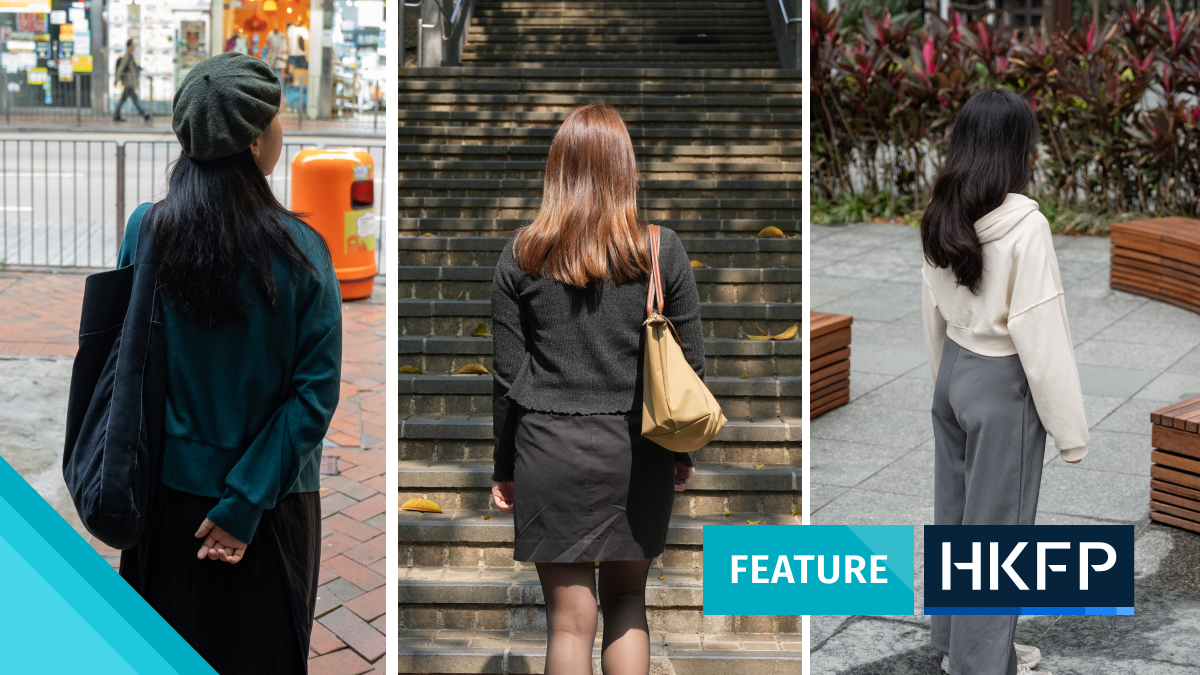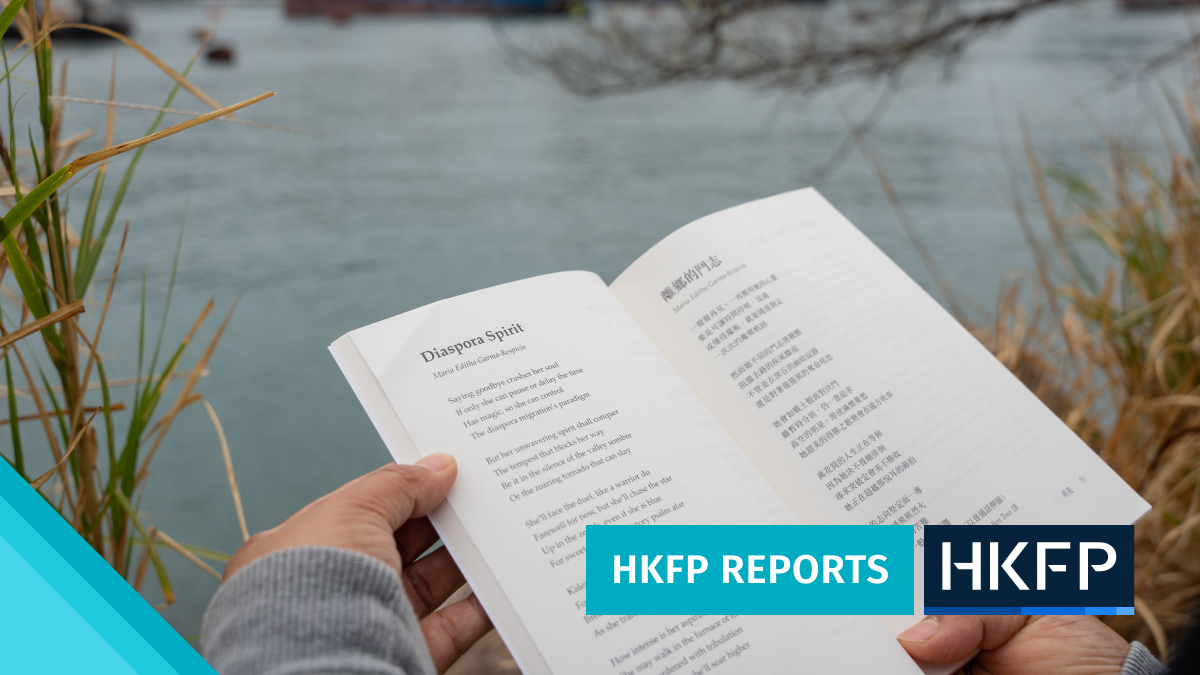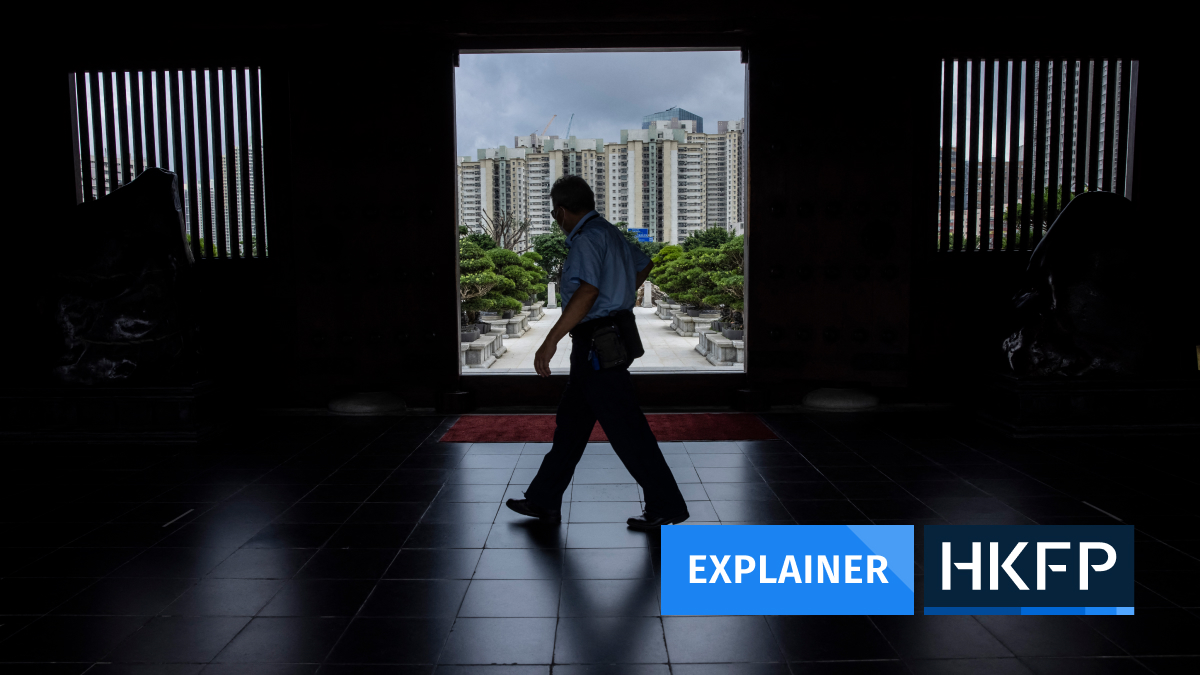By Tom Grundy, Kelly Ho, Irene Chan and Mercedes Hutton in Taipei.
Lai Ching-te, of the ruling, liberal Democratic Progressive Party (DPP), has won the 2024 Taiwan presidential election following a tight race. With the outgoing Tsai Ing-wen reaching her term limit, Lai has vowed to continue her efforts to strengthen diplomatic and military ties in order to fend off Beijing, which claims the democratic island as its own.

Delivering his victory speech to international media on Saturday night, Lai thanked the people of Taiwan and his fellow candidates, calling the island’s election “one of the first and most highly anticipated elections of 2024.”
“I want to thank the Taiwan people for writing a new chapter in our democracy,” Lai said in Mandarin, speaking to foreign press through an interpreter.
“We want to show the world how much we cherish our democracy, this is our unwavering commitment,” he added.
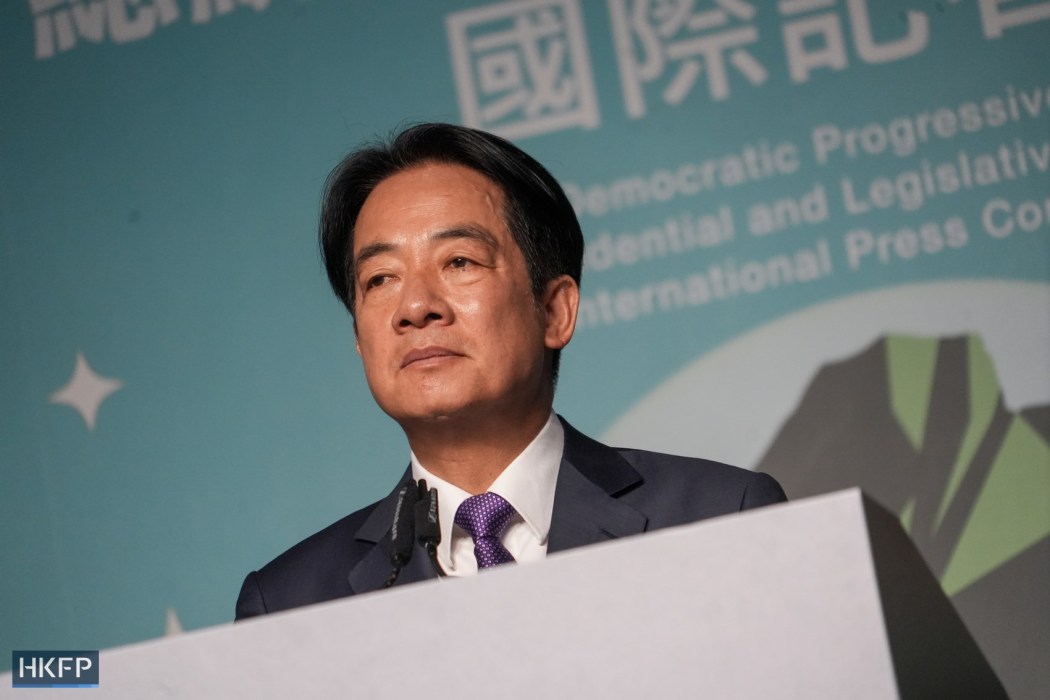
Lai’s win marks the first time in Taiwan’s democratic history that a party has held on to the presidency for three consecutive terms. However, the incoming leader acknowledged that the DPP had lost its legislative majority, saying: “this means we did not work hard enough.”
He added that he had received congratulatory calls from his opponents, Ko and Hou, whose parties the DPP will have to collaborate with to advance policy through parliament. “I look forward to working together in unity for the future of our country,” Lai said, later adding “they will be incorporated into my policy framework.”
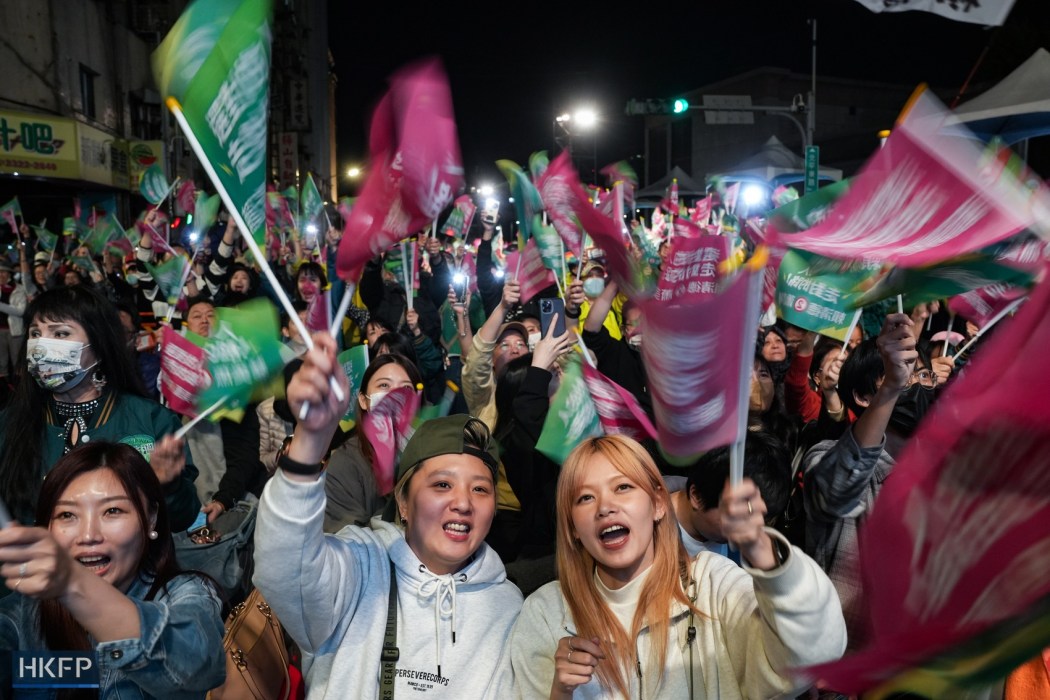
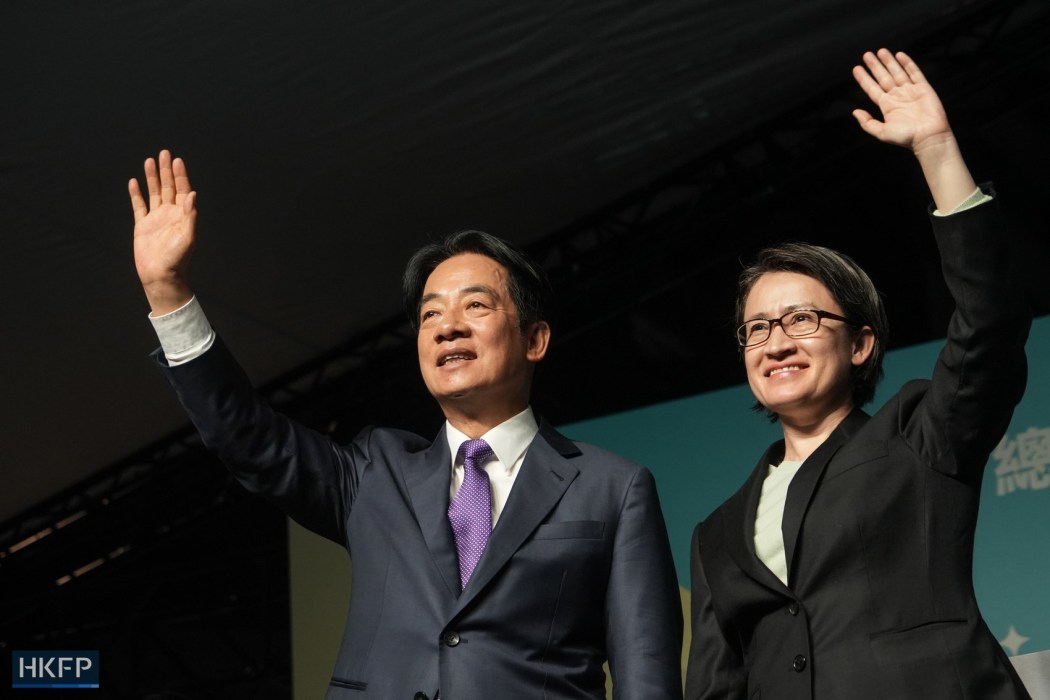
“The election has told us that people expect an effective government, as well as full checks and balances,” he said.
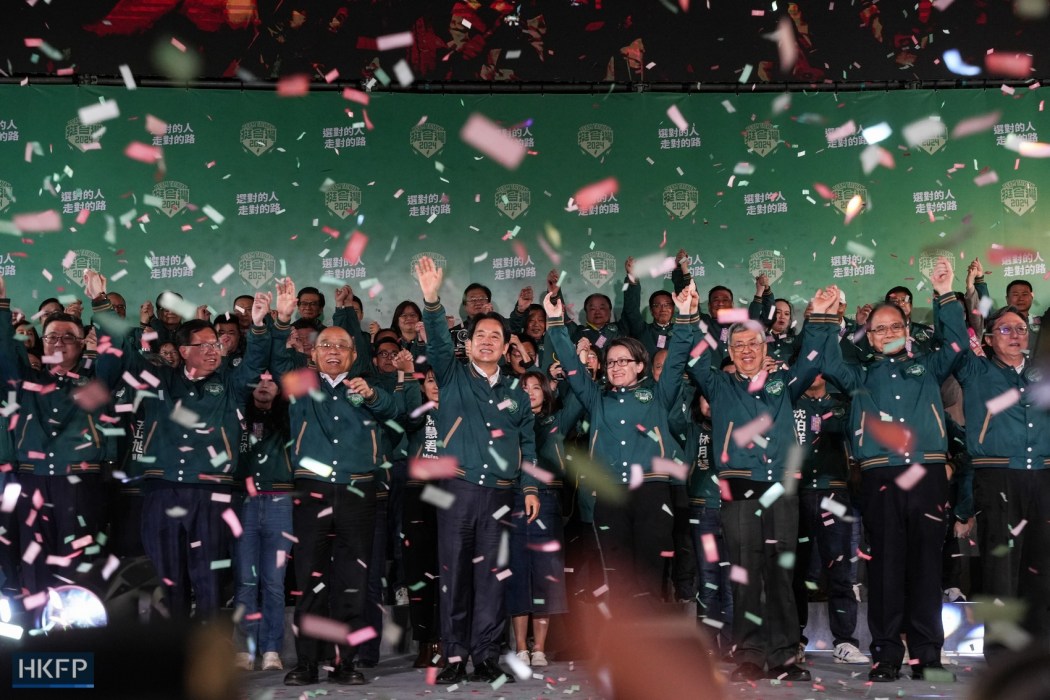
On the issue of China, Lai said that he was “very willing” to engage in exchanges with Beijing, as long as there was “dignity and parity.”
“As president, I have an important responsibility to maintain peace and stability in the Taiwan Strait,” he said, adding, “we are also determined to safeguard Taiwan against continuing threats from China.”
Appearing at DPP’s rally shortly after 9 pm, an emotional President Tsai congratulated Lai: “Thanks to their efforts, this election has been demonstration of the vibrancy of Taiwan’s democracy,” she said in Mandarin. “Thanks to the people of Taiwan for completing the most important election in a democratic society. Regardless of its results, this is the democratic way of life that we all value.”

Tsai said that the ruling DPP would begin mending the divergence shown in the election, adding that voters had decided on a legislature where “more cooperation with opposition parties” would be needed.
Before becoming mayor of the southern city of Tainan, Lai was a doctor and then lawmaker. He originally challenged Tsai to the presidency, before becoming her running mate and – ultimately – vice-president in 2020. He ran alongside Taiwan’s former representative to the US, Hsiao Bi-khim, who will become the island’s next vice-president when the pair take office on May 20.

Confetti rained down on the crowd amid rousing music and cheers as Lai appeared on stage. DPP supporter Vivi, 26, told HKFP that she was “very touched and happy” that Taiwanese people chose their new leader through a democratic election.
She said she had been worried that Lai might lose due to the “third force” and underdog Ko, but she was very pleased that the DPP candidate had claimed victory: “I hope the new administration can continue to lead Taiwan to a better international status and protect Taiwan as a country with independent sovereignty.”
Another supporter, Hank, said he cried at the rally because he was very touched that “Taiwan won democracy,” instead of electing Hou or Ko, whom he deemed pro-Beijing. “I think Taiwan’s democracy is very precious. Some people would say that today’s Hong Kong, tomorrow’s Taiwan. That’s why I’m scared.”

The 32-year-old said he had been a KMT supporter in the past and had voted for Ma Ying-jeou. But he chose to support the DPP’s Tsai in 2016, as he believed the party would “reflect on themselves” and make improvements.
Opponents concede
Lai, 64, beat the nationalist Kuomintang (KMT) candidate Hou Yu-ih, an ex-police chief who favoured more trade and dialogue with Beijing. Speaking to KMT supporters at an election night event in New Taipei City, Hou conceded defeat at around 8 pm, apologised for the result and congratulated Lai.

“I’ve tried my best in the election campaign, but I am sorry that we haven’t succeeded in changing the ruling party, “ Hou said in Mandarin, as supporters shouted “come on”, and “fight again in four years!”
“I will roll-up my sleeves and work even harder tomorrow to live up to your support,” he added.
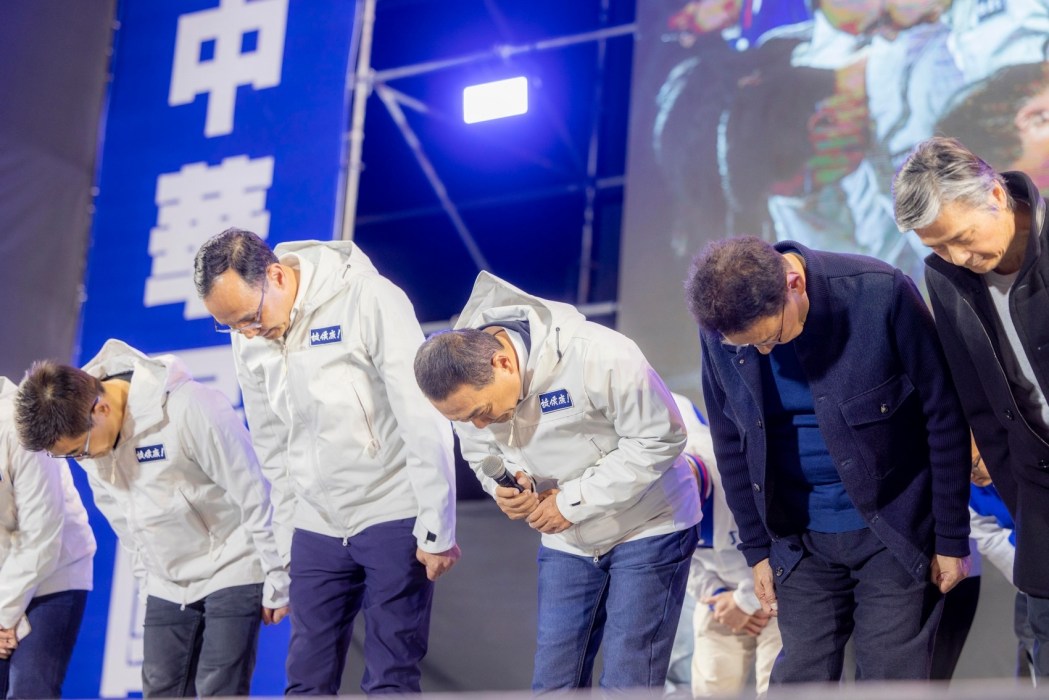
Claire Wu, a KMT supporter, told HKFP that she voted for the DPP’s Tsai in 2020 but switched sides as she thought they were not doing a good job in government. She nevertheless said she accepted the election outcome: “This is a choice made by all the Taiwanese – I respect it. That is how precious democracy works. But I did feel sad, as I like Hou as a politician with integrity,” the 40-year-old designer said in Mandarin.

“It [the DPP] did make Taiwan visible to the world, but it was not doing well in education, failing to allocate education sources to rural areas and developing English education,” Wu said, adding the DPP were “too aggressive” towards Beijing.
Underdog becomes legislative kingmaker?
Wildcard candidate Ko Wen-je, of the new, centre-left Taiwan’s People Party, also conceded defeat shortly after 8 pm. He said his campaign has been a “citizen movement” as he thanked running mate, Cynthia Wu, and TPP’s supporters across Taiwan.

“We will ultimately win over the green camp and the blue camp. We’re in the last mile of our victory,” Ko said, adding: “TPP has become the critical opposition force.
Regarding whether the party will link up with the KMT in the Legislative Yuan, Ko said it would need more discussion.
As of 10 pm on Saturday, Lai had received 5,586,019 votes – or 40.05 per cent – with all polling stations having reported, according to the Central Election Commission. Voter turnout stood at 71.86 per cent, with over 14 million voters having cast their ballots in the presidential election.
Voters reject ‘war versus peace’ warnings
Taiwan has been awash with election promotions during months of vibrant campaigning and colourful rallies. Political scandals, misinformation, and debates over identity have also, however, been rife.
The two opposition parties sought to appeal to younger voters and those disillusioned following eight years of DPP rule. However, their efforts to form an electoral alliance last year fell apart, with voters – on Saturday – ignoring the KMT’s insistence that a vote for the DPP would pave the way for war.
All candidates had rejected Beijing’s vision of a Hong Kong-style One Country, Two Systems arrangement for the island, whilst also ruling out an explicit declaration of independence.
See also: Explainer: Is Taiwan a country? The democratic island’s tangled history
Beijing, too, framed the race as a choice between war and peace, having stepped up military drills around Taiwan, spread electoral misinformation, and sanctioned Western defence firms over arms sales to Taipei.

“The People’s Liberation Army is on high vigilance at all times and will take all necessary measures to resolutely crush any form of secessionist designs for ‘Taiwan independence’,” its defence ministry said in a statement on Friday.


Despite the sabre-rattling, HKFP found that many voters were also concerned with domestic issues, such as the economy, healthcare, rising property prices, inflation and a low birth rate.
See also: For young voters, domestic policies and personality matter for their next president
US intelligence agencies have said that Beijing intends to make a move on Taiwan, but the timing has not been set. US President Joe Biden has vowed, four times, to defend the island from attack, though it is uncertain as to whether Washington would directly involve itself in a conflict.
The “two Chinas” and the threat of unification – click to view.
The Republic of China government has ruled Taiwan since 1945 after Japan was defeated in World War II, ending 50 years of occupation. The ROC authorities fully retreated to the island in 1949 as the communist People’s Republic of China defeated them in the Civil War and took control of the mainland. Beijing has since claimed Taiwan is one of its provinces and has threatened to unify it by force if necessary, despite never ruling the island.
Analysts have said that further military drills by Beijing could be expected under a continuing DPP presidency, as was the case when US House Speaker Nancy Pelosi visited Taiwan in 2022 visit, or when Tsai “transited” in the US last year.
On Friday, US Secretary of State Antony Blinken urged Beijing to maintain cross-strait stability.
Dateline:
Taipei, Taiwan
Support HKFP | Policies & Ethics | Error/typo? | Contact Us | Newsletter | Transparency & Annual Report | Apps
Help safeguard press freedom & keep HKFP free for all readers by supporting our team

Original reporting on HKFP is backed by our monthly contributors.
Almost 1,000 HKFP Patrons made this coverage possible. Each contributes an average of HK$200/month to support our award-winning original reporting, keeping the city’s only independent English-language outlet free-to-access for all. Three reasons to join us:
- 🔎 Transparent & efficient: As a non-profit, we are externally audited each year, publishing our income/outgoings annually, as the city’s most transparent news outlet.
- 🔒 Accurate & accountable: Our reporting is governed by a strict Ethics Code. We are 100% independent, and not answerable to any tycoon, mainland owners or shareholders. Check out our latest Annual Report, and help support press freedom.
- 💰 It’s fast, secure & easy: We accept most payment methods – cancel anytime, and receive a free tote bag and pen if you contribute HK$150/month or more.
MORE Original Reporting
HKFP has an impartial stance, transparent funding, and balanced coverage guided by an Ethics Code and Corrections Policy.
Support press freedom & help us surpass 1,000 monthly Patrons: 100% independent, governed by an ethics code & not-for-profit.






